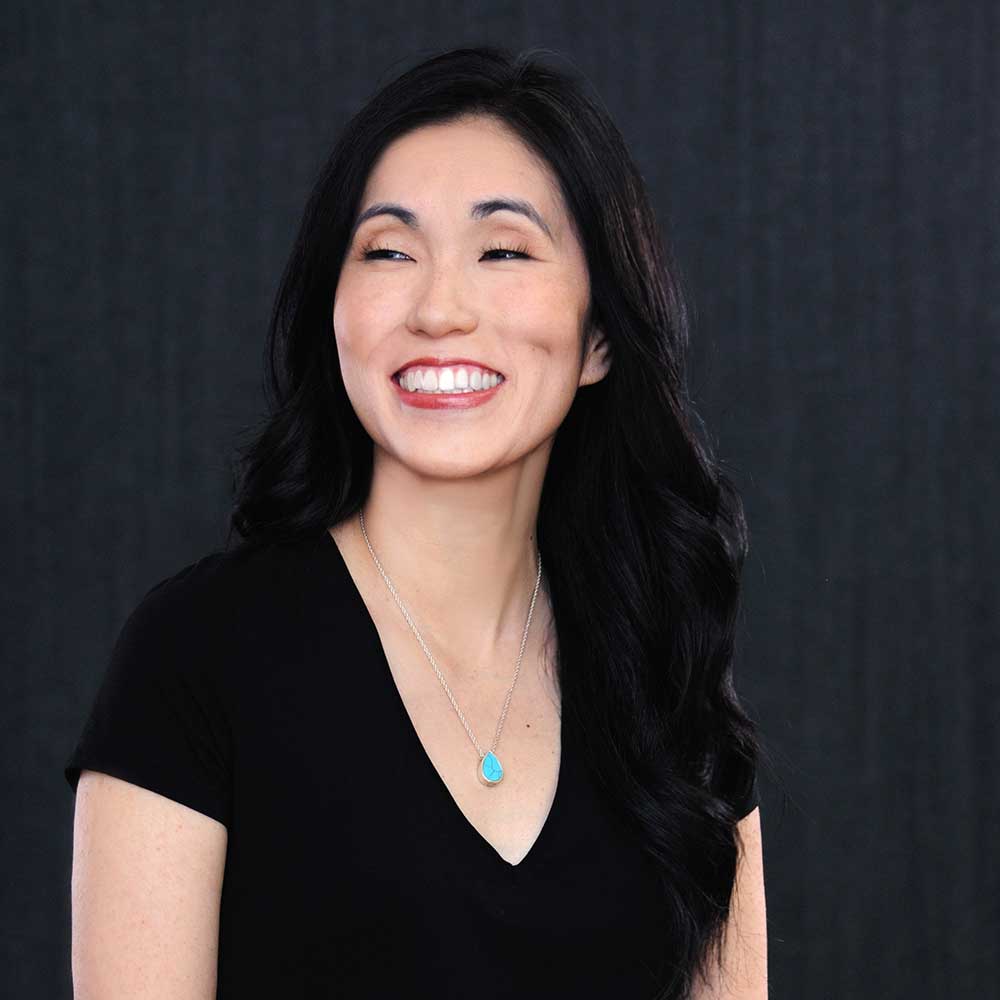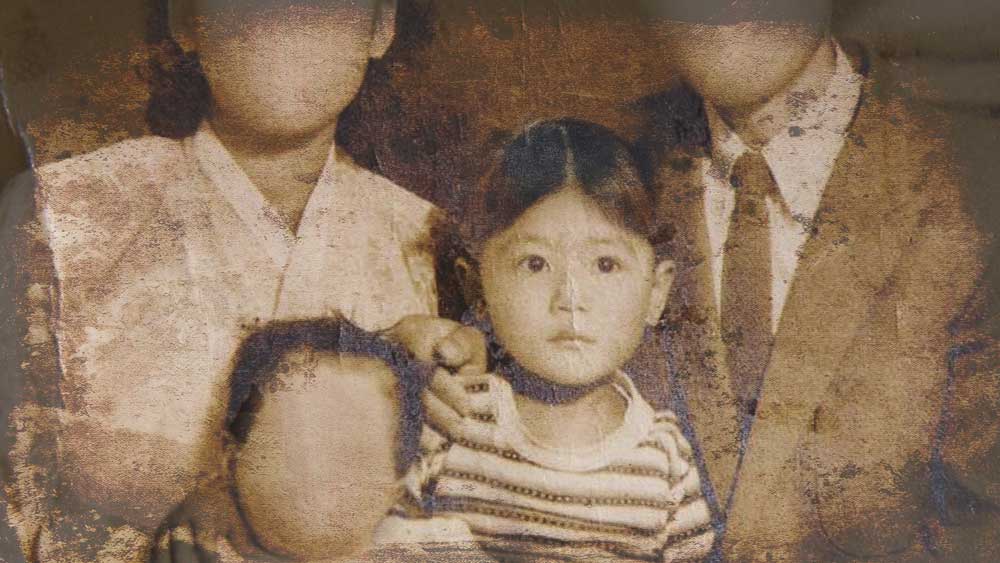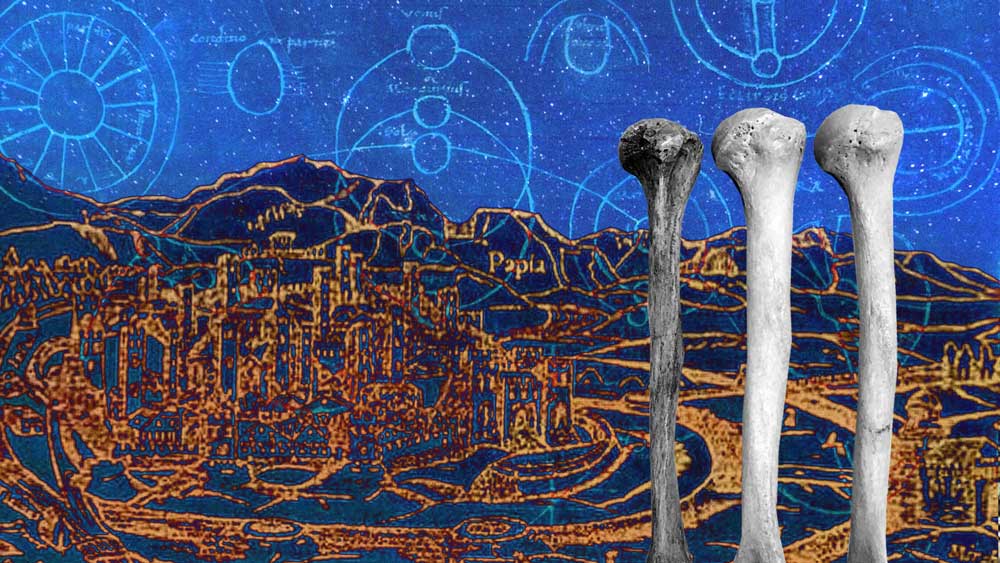The summer I arranged for my mother’s remains to be exhumed, burned, and transferred cross-country, I achieved what my mother could only in death: separation from my father. At age forty-one, I could finally answer a question she had posed to me when I was ten. If she were to leave him, which parent would I choose?
“I don’t know,” I had told her then; my parents fought often, and I had made myself a barrier between them. My mother simply stared at me in the moment, but the next morning, she began stashing away thin stacks of cash in her closet — portions of the monthly allotment Dad handed her with grandiosity to take care of us, their two daughters, and our house in New Jersey.
When I was twenty-one, my mother’s brain hemorrhaged, pitching her into a coma. My father, sister, and I gathered before her stilled body on the hospital bed and, reeling, my father asked me to decide when to switch off her life support. The nurse shut down the machines three long days later. Our timeline of forced and futile waiting done, my father and sister and I propelled ourselves into activity. We emptied and sold our home in ten days. Six weeks later, I graduated from college in New Hampshire and drove to the Bay Area for law school, my grief and I plowing through the plains of Indiana, Iowa, and Nebraska. I wanted to run from all I had ever known, including my father and sister — but Dad wouldn’t hear of my cleaving from the family.
“Your sister and I follow you,” he said. “We stay with you.”
And so they did.
Dad flew to California ahead of my road trip and rented a two-bedroom apartment for the three of us, with my sister reluctantly in tow. At the time, she had just finished her second year of college in Massachusetts. Younger than me by three years, she resented us for selling her childhood home, which, like our mother, had been a touchstone.
Our father loved us, but he wasn’t kind. Soon after our mother died, he visited my sister at her college dormitory, where he rifled through her desk and discovered pictures of her shirtless boyfriend, a student from Egypt. His response was to stun my sister with smacks to her face while students watched on in the hallway. Eight years later, the day I turned thirty, Dad called to breezily wish me a happy birthday and, in the next breath, lowered his register. “You should not marry Petar,” he said, referring to the man from former Yugoslavia whom I’d been dating and had gotten engaged to four months prior. “He is not trustworthy,” he added — all because Petar had failed to pick up the lunch bill at our last family outing. As usual, Dad and Petar had bantered back and forth in offering to take the check once the meal had concluded; normally, Petar paid, but this time, he ceded to Dad. We all had laughed at this surprising turn, yet Dad distorted the result of their most recent “bill dance” into something sinister to stew over for weeks.
Furious at his insinuation and ridiculous belief that I’d fall for his manipulation, I screamed my response and ended the call. I had forgotten how he infiltrated and sabotaged. He tended to take what was precious to others and twist. Dad, I wanted to say, be careful of what you break, piece by piece. Three months later, he yielded and walked me down the aisle. My sister, eerily similar in personality to our father, skipped my wedding, enraged that Dad had accepted my non-Korean partner but not hers. Not long after this, she cut off in-person contact with us for a decade, during which time Petar and I lived in San Francisco, where I practiced litigation and later worked with students at a law school. Then, seven years into my sister’s self-imposed exile in New York, I gave birth to a boy, whom she did not wish to meet.
But the years on her own in a fast-paced, expensive city caught up with her. My son had turned four when my sister made an unexpected announcement: She was tired of her life in New York. Unemployed and in dire financial straits, she hoped to figure out her next steps from the sanctuary of our father’s house in California. She emailed, “I’m excited to be around my family again. I just want to live a simple life for a while.” For years, Dad had rued that she had preferred a tiny studio in a city so far away, when his four-bedroom house in the East Bay, purchased after I had finished law school, offered plenty of space. Now in her late thirties, she finally would make our father happy and partly fulfill his vision of his daughters living with him again under the same roof.
Or so we believed. Unable to find a job, Dad was edged into retirement, and became increasingly explosive at the idea of a freeloader ratcheting up his utility bills. He had been born into wealth, but circumstances changed when a family member embezzled it into ruin, forcing him to grow up poor in deeply classist, post-war Korea. Later, in his prime, he thrived as a textile broker in Central America for a Korean company. But once his personal connections retired or were replaced, his business dried up. He diligently sought work near his house, finding odd jobs here and there, but no one wanted to hire a man in his sixties whose English was good but not great. This did not stop him from continuing to gamble away his savings and spending freely, though, trusting that I’d still cover his expenses with the sums of money I regularly sent him — he was oblivious, it seemed, to the manner in which he, too, acted like the type of dependent he claimed to despise.
Living with Dad at this time was Ms. Jung, whom he had met at church shortly after moving into his house in the East Bay. They had been cohabitating for ten years when my sister returned and took up residence in Dad’s house. Though Dad and Ms. Jung had never married, Dad treated her like a wife, which suited her well. Unlike my mother, Ms. Jung cheerfully attended to his cooking, cleaning, and emotional management, and on top of all this, she paid her portion of house bills too. In return, she reserved the right to bristle at the prospect of any other woman exerting influence in what she now considered her domain, especially when that woman was someone who could trump her status simply by being of my father’s blood. Threatened by my sister’s presence, Ms. Jung agreed with my father in calling her “dumb” and “useless”; even claiming within earshot of my sister that it was impossible to make rice worse than she did.
But Ms. Jung had her own jagged history with Dad. Three years prior, Dad had nearly killed her by refusing to call an ambulance when she turned feverish and fell unconscious on the bathroom floor — he was hysterically afraid he’d be held responsible for her medical costs. She awakened, and two excruciatingly long days later, convinced him to dial 911. At the hospital, the ER surgeon managed to save Ms. Jung by removing from her bloated abdomen a bacterial infection that had hardened into a brick. The following week, after Dad’s rampaging frenzy dialed down, she returned to Dad’s house, believing she could figure out once more how to live with him.
Petar and I had settled in Berkeley with our four-year-old son by the time my sister moved back to California. It was there that I fully confronted what I had tamped down, like Ms. Jung had, to maintain a relationship with the parent who lived: namely, the hard conditional limits of my father’s love. As a mother, I became especially attuned to the limits of what a child can and cannot do, and this reminded me anew of my sister. My younger sibling possessed a vulnerability and naiveté that our mother had recognized could crash together into liability in the real world; simply put, my sister is someone who will always need a parent nearby. But since our mother was gone, I tried to shield my sister now from Dad’s caustic behaviors. With her sloppy living habits cultivated from having to accommodate only herself, my sister was not blameless — but I knew she was trying to survive. When I challenged Dad on how he was treating his child in crisis, he flexed his overworn definition of filial love; in an email titled “Are you my daughter?” he outlined all the ways Petar and I had wronged him. Petar called him “Mr. Choi,” instead of “Father,” and rarely bowed to greet him. And after my father had paid my tuition, how dare I threaten to withhold paying his property tax — so what if he asked me for a third car? What kind of daughter was I for not paying his golf club green fees? I had no business treating him with such disrespect after he had spent so much money on my education. “You seem not to be an educated daughter these days…Do not erase this email. Read it many times.”
My father’s condemnations flooded me with rage but also tarred me with guilt.
After reading Dad’s email for himself, Petar asked me, “If we are able to pay for our son’s college, would we expect him to pay us back?” From his own experience fielding a difficult parent, my husband understood my dynamic with mine and usually offered a counter perspective. We had before discussed the importance of not passing down abusive behaviors and cycles to our son, or exposing them to him as “normal” just because they came from family.
Petar’s words grounded me and lit up another insight: I had been keeping my own ledger of Dad’s misbehaviors. His night trips to Atlantic City, which set off aftershocks between my parents; the time Mom screeched my name when I was in middle school, and I scrambled out of my room to see her pinned on the floor underneath Dad, who only backed off after I called the police; the time over family dinner that Dad labeled my best friend in high school a “prostitute” for dating a white boy. Some months later, he tore my room apart because he believed I had snuck away on a date. (In fact, I had shared with Dad all the details of my planned outing to a movie theater, but he’d been too preoccupied by yet another match of wills with Mom to remember when it came time for me to leave.) The next morning, on the lawn in front of the church steeple with the congregation milling around, Dad yelled out the boy’s name, demanding he appear, and publicly rebuked us both.
In my adult years, I managed the anarchy of Dad’s constant chaos, including the various legal and financial predicaments I counseled him out of — or cleaned up after — when I was in law school and then became an attorney: selling hastily purchased stock options because Dad couldn’t tolerate their unpredictability; getting out of a bad real estate contract; filing a suit to get purported tens of thousands of dollars from an insurer following a minor car accident. The list went on, and I realized now my bandwidth for him did not.
It turned out that Petar had an item of his own to add to the ledger — one I hadn’t known bothered him till recently: how Dad couldn’t pull himself together enough to determine when to pull Mom’s life support. “Your father should not have put that on you,” Petar said. In this particular instance, I had no regrets or resentment toward my father, having understood that of the three of us in the hospital back then, I was the only one equipped to make this call. But it may be true that my father’s ask inflicted unseen injury — to this day, my mind draws blank swathes when trying to picture my mother’s final hour.
The morning after receiving Dad’s email, I wrote him a message of severance. I expressed my gratitude for his financing my earlier education and assured him I would continue to pay the property taxes on his house year after year. But I had no obligation to do this, I reminded him; I was not married to him. I said I forgave him for being an unkind husband to my mother, but his previous support of my sister and me did not give him license to mistreat us. Going forward, our relationship would not be one of father-daughter, but of business, and all future correspondences between us would take place by mail.
As part of that business, I secured my father’s signatures to approve the transfer of my mother’s remains from New Jersey. While my sister lived in New York, it felt right to have our mother near the younger child, who had always needed her guidance — though after our mother died, my sister never ventured to her gravesite for fear that a visit would trigger memories of our mother’s last days and cause an anxiety attack. But now that the three of us lived in California, I wanted our mother here.
Transporting our mother’s headstone and coffin was prohibitively expensive, and after nineteen years of decomposition, it made more sense to have what remained cremated. I selected a burial spot overlooking the San Francisco Bay, at a cemetery ten minutes from my house. In August of that summer, Petar and I observed the marble urn containing my mother’s ashes being lowered into the ground. I sent my father and sister directions and a map marking the plot, but I do not know if they ever made the half-hour drive there.
For years, I hadn’t questioned the culturally sacrosanct Blood is thicker than water, nor the defensive refrain espoused to bypass transgressions and uphold family ideals: But he is your father. There is also a Korean saying, “Bwah-ju-yoh”: True, this person is making your life difficult, but tolerate and turn a blind eye to it. This concept is rife in Korean dramas, of looking past the offenses caused by one’s family and giving leeway to those less fortunate. Life has been hard for them — look at their history, the saying urges. Can you blame them for how they act? Implicit in “Bwah-ju-yoh” is the idea that we should accept people at their worst selves because there is a sense of futility in asking them to change.
Dad insisted on an extreme version of filial piety from Confucianism, a piety underpinning many familial relations in Korea that presumes children will financially support their parents into old age. He said his demands were in deference to tradition, and I believed him until Petar pointed out how my father cherry-picked from those traditions, discarding whatever didn’t serve his one-way purposes. I was to fall in line with his domestic expectations of women (cooking and cleaning, for example), but also return to practicing law so that I could provide him funds and enable him to boast that he had a lawyer for a daughter.
Despite his illogical, uncompromising ways, sometimes I miss my father. There are tender recollections that I retrieve like keepsakes: Back in New Jersey, I remember how Dad slung my five-year-old self over his shoulder after road trips in the Oldsmobile station wagon, the cloying yet comforting scent of his Old Spice filling my nose. My head would loll to the side as I pretended to be asleep so he’d keep humming his lullaby: Jajang jajang my little girl, my little one sleeps so well…And then there was the time when he watched my final dance performance during my senior year in college — the only time he has seen me dance — and he preened and exaggerated to others in the audience, “That’s my daughter, the best dancer.” I remember, too, our first family trip, mere months after Mom died — how we raced to Yosemite National Park in a haze of last-minute reservations, driving hours in the dark. My father welcomed the frigid air that seeped into our canvas tent, jubilant that we could somehow find adventure and wonder as a family of three.
But then my mind reels forward, and I remember shaking in my seat while being evaluated as a juror in San Francisco, struggling to stay calm as the assistant district attorney, a former student of mine, asked about my opinions on domestic violence. I remember how often my father’s noxious energy made my head tingle while spending time with him and after reading his scathing letters that he usually typed out in business-formal, defiant English. Even today, there are moments when I cannot move from my chair, and my son, hovering nearby, must repeat his questions before my mind and body emerge from where they have tucked themselves into protective folds.
Whether beseeching or virulent, Dad always hand-scrawled on the last page, “I love my daughters.”
Half a year after my sister moved into Dad’s house, and four months after the reburial of my mother’s remains, Ms. Jung left. Once my sister settled in, Ms. Jung finally came to accept what I had told her a decade before: My father would never add her to the title of his house, nor would he designate her as a beneficiary, despite all the years she’d spent sincerely caring for him with spouse-like devotion. A blitz of emails and letters arrived to my attention not long after her departure:
“She ran off with our mother’s jewelry,” a message from my sister read.
“She married a white man with Alzheimer’s who’s dying of cancer to inherit his assets,” a letter from Dad said.
That same week, Ms. Jung texted, thanking me for my generosity over the years and asking me to call her. I did not oblige, choosing instead to end that relationship as well. Most of my mother’s jewelry was costume jewelry, and all the pieces she’d collected over the years were emblems and relics of her volatile marriage, which was why I’d chosen to leave them at Dad’s house in the first place. This did not mean, however, that I was okay with Ms. Jung’s theft. Like my sister, I had never truly trusted Ms. Jung — her praise and compliments to me had undercurrents of both kindness and manipulation. In hindsight, though, I probably should have thanked her, too: while she had lived with Dad, she absorbed the turbulence of his wild moods, which, as a result, meant less attention directed at me. But to carry on with Ms. Jung invariably would have connected me back to my father, and I wanted a clean break, as much as one was possible.
In the months following, I learned that Dad continually harassed Ms. Jung for funds by phone and in person; after allowing her to live in his house rent-free for years, he now wanted reimbursement. Ms. Jung responded by filing a request for a temporary restraining order, which prompted Dad, in turn, to show up at my house unannounced, holding the court summons and bags of disheveled documents. Though we hadn’t seen each other in a year, he still apparently expected me to represent him. I stayed out of sight, listening to Petar answer the door and in a calm, gentle voice, refuse him entry and service. My father remained outwardly demure in a show of respect for the husband of the house, and reserved his fury for me in the emails and letters that followed (“Your husband yelled at me, treated me like I was a criminal…After all the money I spent on you, my daughter is so ungrateful.”).
Although I had no interest in being my father’s lawyer, I believed he deserved a fair shot at defending himself in court. And since his spoken English ranged from mediocre to good at best, I advised him by letter to find a bilingual paralegal to interpret on his behalf, and included a check for an amount to cover this fee. In his reply, Dad balked that I did not give him more.
In court, Ms. Jung showed the judge a threatening email from my father. The restraining order was issued, which finally scared him enough to stop contacting her.
I kept a line of communication open with my sister, who eventually found a job at a clothing boutique and figured out how to coexist with Dad in his house. Because my sister thinks like our father, however, she believes to this day that he did nothing wrong to Ms. Jung, and cannot understand why I refused to represent him.
“But he is our dad, Unni. He’s getting older, too,” she said, before spouting more platitudes about how we should appreciate the time we have left with him.
“That is why I have stayed with him as long as I have,” I said.
Though my detachment from Dad developed in phases, the end of our connection was abrupt — his email, my message of severance in return. This blunt resolution appealed to the former lawyer in me, but that clutch of determination softened into sadness on holidays and birthdays, which were somewhat muted by his absence. I grieved over the loss of the fantasy of what our family could have been, memories with them that had been good, and the possibility of any future moments that I seared off in self-protection. As Korean was my first language, and one I still speak, I call him ‘Appa,’ which stings and tugs at the part of my being hardwired from birth to love him. In his middle age, Dad looked remarkably like Richard Gere before he grizzled into Alec Baldwin, and today, I skip past shows and movies starring either actor. In my writing, my father is ‘Dad,’ because I need this less intimate address as a buffer from what I have lost, left behind, or perhaps never even had.
My grief contained residual hope that things could one day be different, which was why I dipped back into contact with my father two years after Ms. Jung left, and navigated him through surgery and a subsequent treatment plan for a tumor found in his bladder. Thankfully, the cancer was detected early enough to be excised, sending Dad into remission — but just as soon as I began to wonder if his outlook would shift after confronting his mortality, I received my answer. My contributions were eroded into a commodity once again, while Dad’s verbal attacks kicked back into familiar high gear over all that I had failed to achieve for him. He will not change, I realized, and this certainty brought relief. Muddied words from Dad (“You are a bad daughter”) had stayed with me, and these latest interactions with him confirmed I had made the right decision — and clarified that I no longer wanted his estimation or approval. Knowing he will not change anchors me today in the reality of our relationship, and I continue to direct his screaming emails to my junk folder where they remain unread. Though I am becoming less porous to his invectives, sometimes I still ask Petar to screen Dad’s letters, which arrive seasonally in batches by mail.
Everything in my severance letter to Dad had felt truthful in the moment, but I recognized over time that I did tell one lie: contrary to what I’d written, I had not, in fact, forgiven him for how he had harmed my mother. Petar has said it cannot be easy to be my father — to live in a mind that accuses without respite. It has taken me years to acknowledge he will never take responsibility for his own happiness or misfortune, and that, for too long, I had believed it was my place to do this for him. Now at a remove, I am finding the capacity within to hold him with more compassion — one that doesn’t require me to carry his misery. Only after months of his absence had passed did I feel the weight of my relationship with him. In laying it down, I can say I have done enough.
“Bwah-ju-yoh” is not only a saying but also a request to please accept a person for who they are. In keeping my distance from my father, and therefore preserving myself, I reply in the affirmative: Bwah-jun-dah. As Dad demanded, I have not erased his email. I have read it many times as a warning of the treacherous terrain that is his love.
If I were to leave, my mother had asked me, which parent would you choose?
I wanted both, I would say. And yet I can’t have either.




